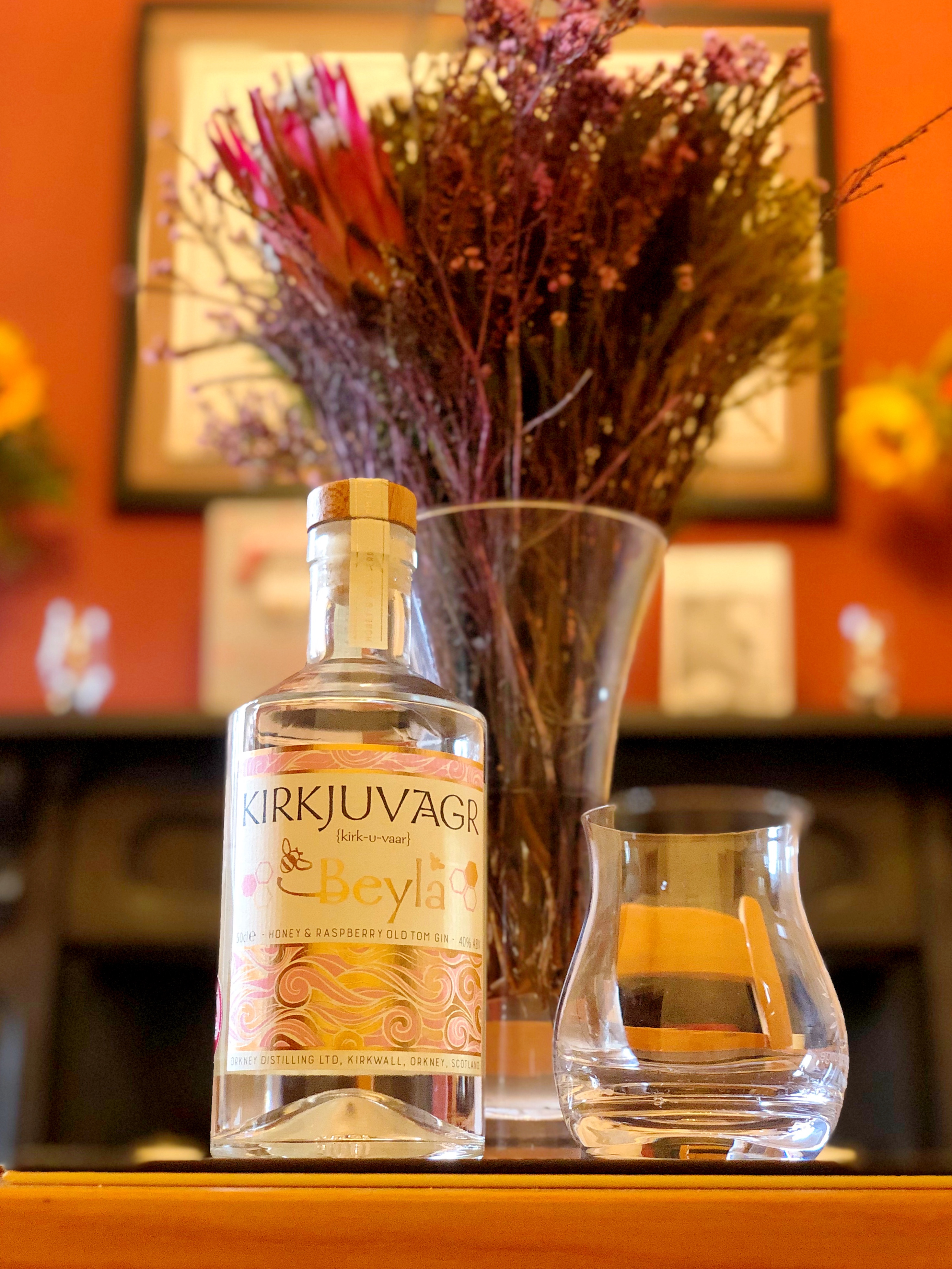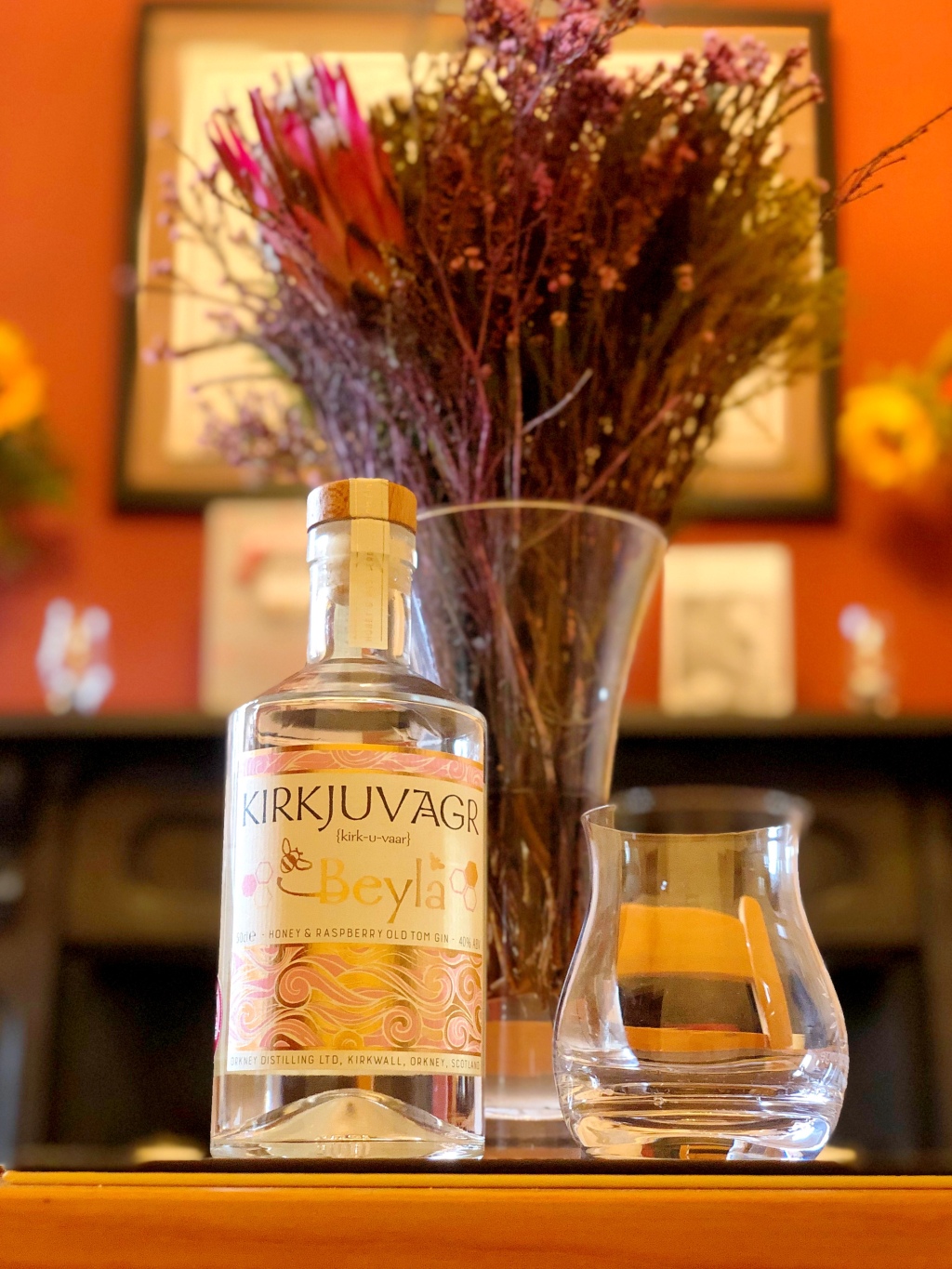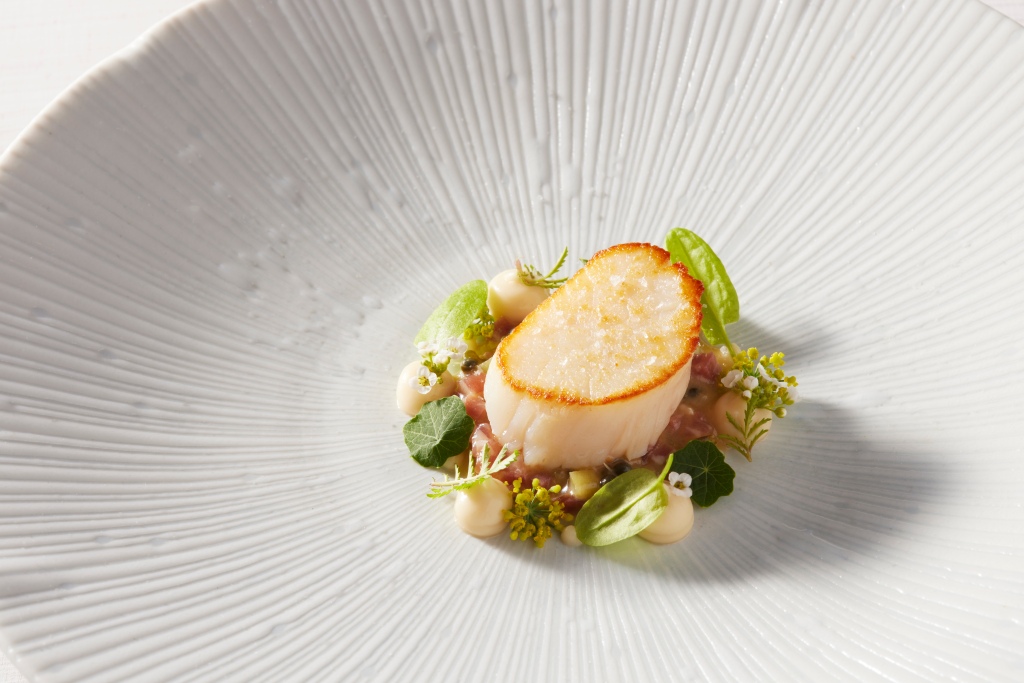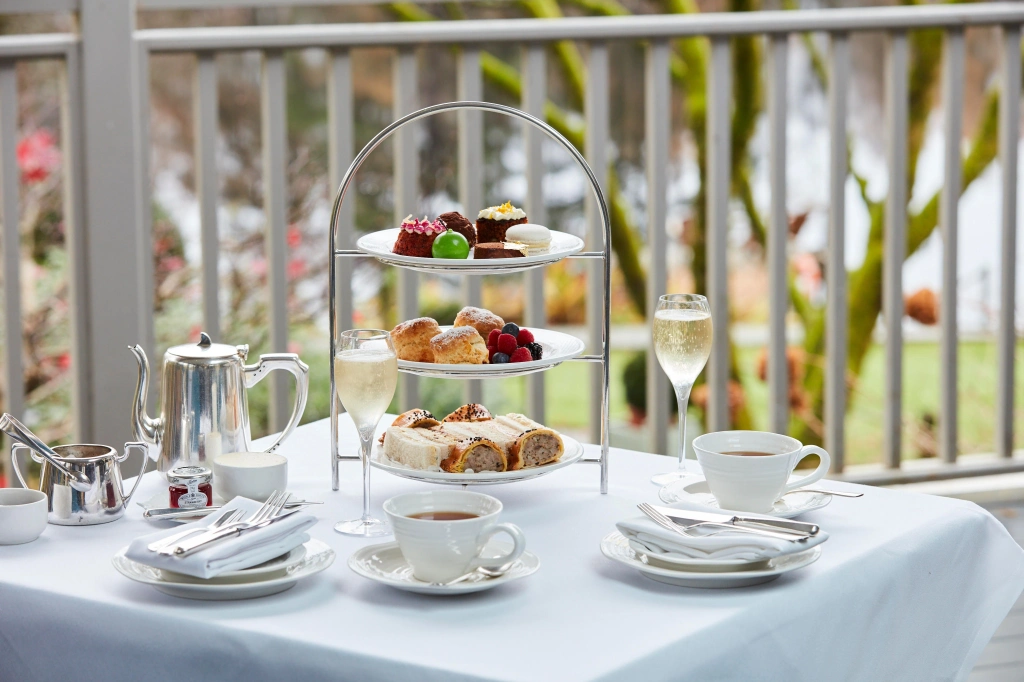Today is the very first International Scottish Gin Day – celebrating all there is about Scottish Produced Gins, so I couldn’t really have a Gin of the Month from anywhere else this month.
Kirkjuvagr (Pronounced Kirk-u-varr) is a gin produced in Orkney and the name means ‘Church Bay’ in the ancient Norse language. But it’s not just the name that dates back to the times of the vikings, as the Angelica used in the production of their gin, was said to be bought to the island by Norseman centuries ago and is still found growing on the island today.
Using a wheat based spirit with the addition of Orkney bere barley used as a botanical, this is a very smooth tasting spirit
The Kirkjuvagr Gin that I was sent to sample and review was called ‘Beyla’, named after the Norse goddess of bees, and what a very fitting name it is.

The bottle is simple in style with a wooden stopper which seems fitting as a gin that has its roots in the ancient past. The ancient influence continues on the top with the design being of a Vegvisir, a Viking compass that helped the Norsemen navigate.
Beyla is made using their base Kirkjuvagr gin with the addition of Orcadian honey that comes from bees that frequent the gardens of the Agronomy Institute in Kirkwall. It is also where they grow some of their other key botanical’s used in the production of their gins.

In addition to the locally produced honey, Beyla also incorporates fresh Scottish raspberries into the mix to bring freshness and to balance out the sweetness bought by the honey.
Old Tom in style, Beyla is fruity on the nose, but with Juniper still being at the forefront, this is then followed by the fresh raspberry which is just subtle enough to be noticed, without drowning out the other botanical’s.
Tried neat the gin was sweet, but in a very pleasant way, not overpowering. It also does not quite feel like the 40% vol that it is. It is on the palette that the raspberry really shone. I have to admit that despite not enjoying sweet gins too much, this one went down so well neat, sipping and enjoying its complex and well balanced elements.

As a gin and tonic I tried a few combinations, but the real winner for me was partnering it up with a fever-tree aromatic tonic. The bitterness of the angostura and the sweetness of the honey was a true delight, made even better in the garden while the sun shone.
I’m constantly being surprised by the variety of the gins that come from Scotland as well as elsewhere in the UK, each with their own stories and flavours, their really is a number of gins for all kinds of locations and I would urge you to give this beauty a try.
Beyla can be purchased directly from Orkney Distillery here
Disclaimer
Beyla was sent to me to sample. The post and the thoughts and opinions in it are my own, impartial and honest.






Leave a Reply